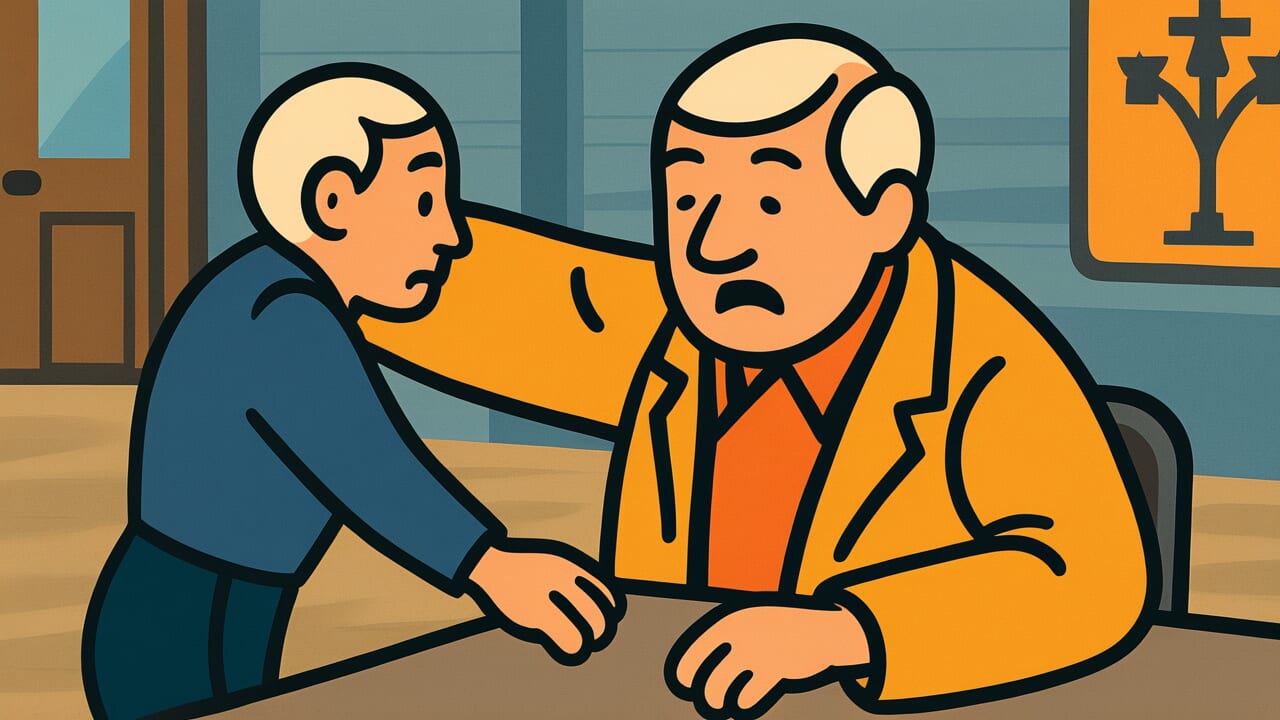How to Read “As one grows old, one should become increasingly vigorous”
Oite wa masumasu sakannarubeshi
Meaning of “As one grows old, one should become increasingly vigorous”
This proverb teaches that people should not lose their spirit or motivation as they age. Instead, they should remain vigorous and active.
Physical strength may decline with age. However, experience and wisdom accumulate in the mind. This allows older people to engage in fulfilling activities that surpass their younger years.
People use this saying to encourage someone who wants to give up something because of their age. It also praises elderly people who remain active and engaged.
Additionally, it serves as a personal guideline for maintaining a positive mindset as you grow older.
Today, we talk about living to be one hundred years old. In this context, this proverb becomes even more important.
It describes the attitude of elderly people who take on new challenges after retirement. It also applies to those who continue contributing to society.
Origin and Etymology
This proverb is believed to come from ancient Chinese classics. The most likely source is the Book of the Later Han, a historical text from the Later Han dynasty.
In this book, a general named Ma Yuan spoke similar words. His phrase was “As one grows old, one should become increasingly vigorous.”
Ma Yuan continued fighting on the battlefield even after turning sixty. He believed that age should not make you weaker.
Instead, experience and wisdom should make you stronger. He reportedly said, “A great man should become increasingly vigorous as he grows old.”
This saying traveled to Japan and became established as a proverb.
The word “vigorous” means more than just physical strength. It expresses abundant spirit and motivation.
Ancient Chinese culture respected the wisdom and experience of elders. At the same time, it valued mental strength that does not decline with age.
This proverb reflects that Eastern philosophy of life. In Japan, it became widely used after the Edo period.
This spread was influenced by the samurai spirit and Confucian thought.
Usage Examples
- My grandfather continues painting every day even past eighty. He truly embodies “As one grows old, one should become increasingly vigorous.”
- Entering graduate school after retirement? That’s the spirit of “As one grows old, one should become increasingly vigorous.”
Universal Wisdom
This proverb has been passed down because it contains deep insight about human growth. When we are young, we tend to think physical strength and youthful appearance are what matter most.
However, our ancestors understood a deeper truth. The real richness of life deepens as we age.
Growing older is not decline. Through various experiences, we develop better judgment. We gain mental strength from overcoming difficulties.
We acquire wisdom to see the essence of life. These treasures cannot be obtained through youth alone.
This proverb teaches that such inner growth is true human strength.
Humans have the potential to keep growing at any age. Even after physical peak passes, the spirit can mature.
This allows for achievement at deeper levels. The proverb expresses this universal truth simply and clearly.
Anxiety and fear about aging are common human emotions across all eras. That is why these words resonate through time.
They help us see aging in a positive light.
When AI Hears This
In complexity science, systems gain more elements and interactions over time. At a critical point, something new suddenly emerges.
This new property cannot be explained by individual elements alone. We call this “emergence.”
Consider the human brain. Compare a twenty-year-old brain with a seventy-year-old brain. The younger one has better processing speed and memory.
However, the seventy-year-old brain has a massive database of fifty years of experience.
What is interesting is that accumulated experience is not simple addition. Work, romance, failure, success, and relationships are different domains.
When these experiences connect complexly in the brain, patterns invisible in youth suddenly appear. The insight that “this failure and my current situation share the same structure” does not come from individual memories alone.
It is wisdom that emerges only when multiple experiences interact.
The complexity theory concept of “edge of chaos” is also suggestive. Systems cannot be creative when completely ordered or completely chaotic.
They become most creative at the boundary between the two. The aging brain exists precisely in this state.
The flexibility of youth is fading, but the order of experience is present. This delicate balance creates emergence of a new ability: integrated judgment.
Aging is not deterioration. It is a phase transition of the system.
Lessons for Today
This proverb teaches us the importance of not using age as an excuse. We now live in an era of one-hundred-year lifespans.
Sixty or seventy years old is still the middle of life. It is never too late to learn new things.
You still have plenty of potential to contribute to society.
No matter your current age, how you live your future life depends on your own attitude. You may feel physical decline at times.
However, mental fulfillment is something you can choose for yourself. In fact, your accumulated experience enables deep understanding and contribution impossible in youth.
What matters is not viewing aging negatively. Instead, see it as an opportunity for new possibilities to open.
Start a new hobby after retirement. Participate in community activities. Share your experience with younger generations.
Each of these actions enriches your life. They also positively influence people around you.
Age is just a number. If your spirit remains vigorous, your life will continue to shine.



Comments